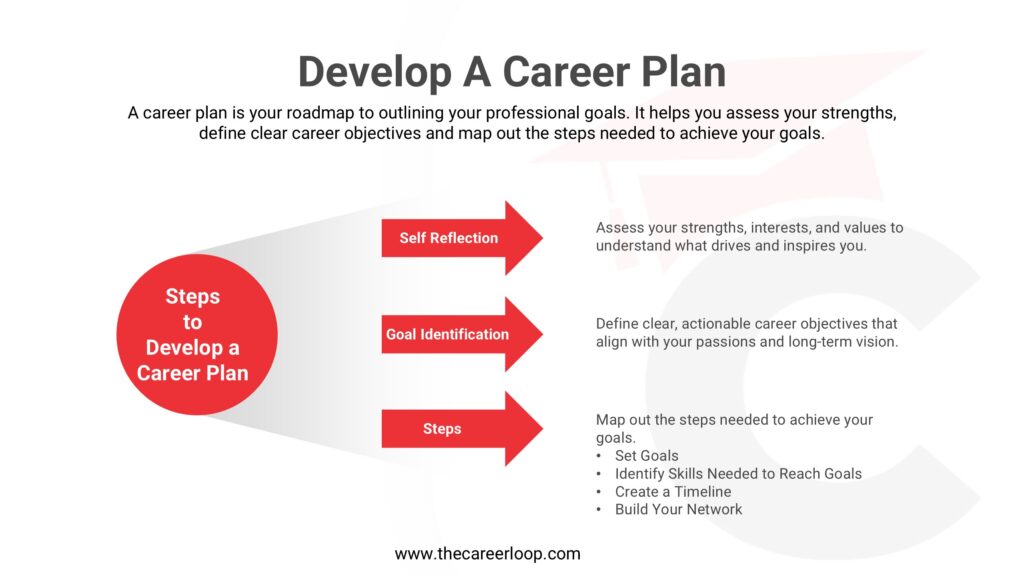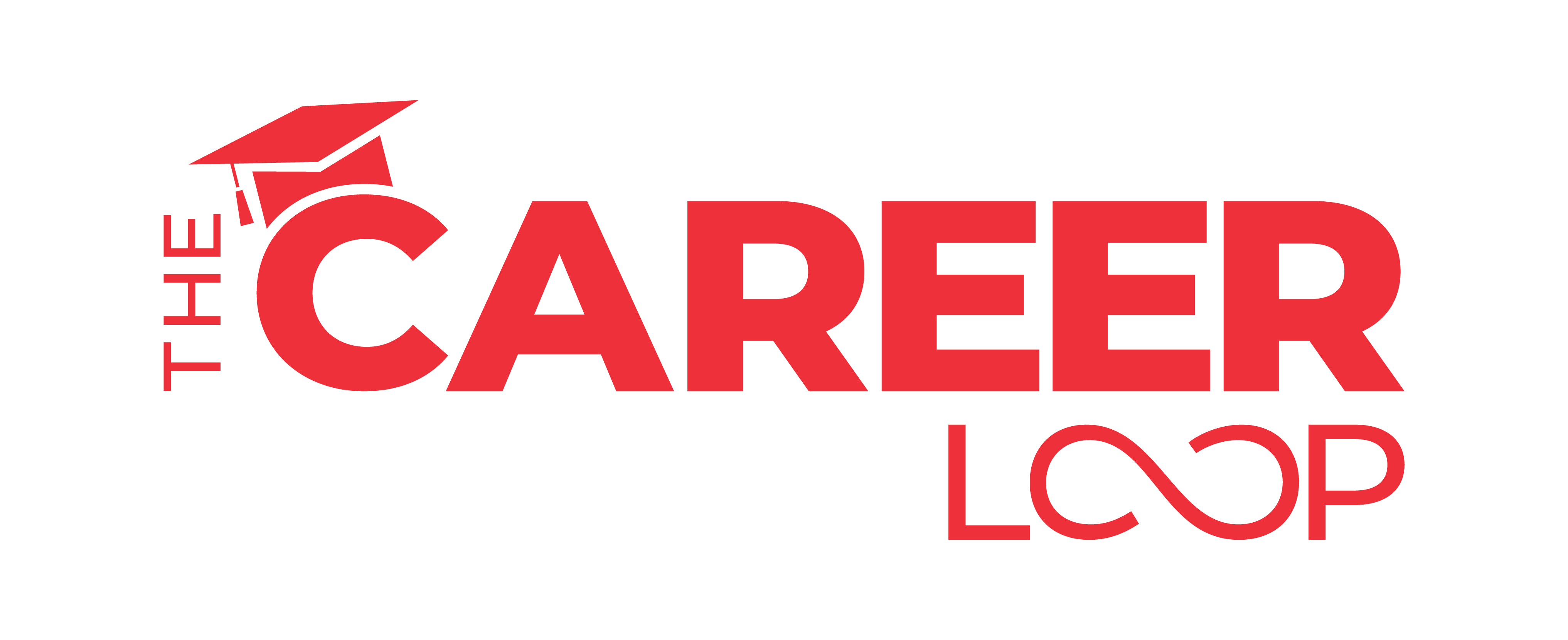Before a road is built, there is a plan with careful mapping that ensures there is a solid foundation and a route to connect paths. Career Planning is similar to building a road. It involves a map to identify your skills and the steps needed to pave the way forward to career success.
Creating a thoughtful plan will help you achieve both short-term and long-term goals, regardless if you are starting out in your career or considering a career change. Taking a thoughtful approach to your career and educational planning is essential for building a successful and fulfilling future.

Why is Career Planning Important?
To help you align your skills and ambitions with opportunities in your desired field, make a plan that will provide you with structure and direction. A career plan allows you to make informed decisions about educational requirements, licensing, and professional development. By understanding what steps to take, you can confidently navigate your career steps to a new job or transition to a career change. A plan helps to stay on track and meet your goals.
Let’s use an example of how a plan can help you transition between career roles. A career in healthcare could start out with a role as a certified nursing assistant (CNA) and, with additional education, an individual may advance to roles like Licensed Practical Nurse (LPN) or Registered Nurse (RN). Planning will assist you in a smooth transition between these roles while building a strong foundation for long-term growth.
- Set a Goal: Define your objective to become an RN within three years.
- Identify Requirements: Research the education, certifications, and skills needed, such as completing an Associate’s Degree in Nursing (ADN) or a Bachelor of Science in Nursing (BSN) and passing the NCLEX-RN exam.
- Create a Timeline: Allocate time for prerequisites, applying to nursing programs, and studying for the NCLEX-RN.
- Build Experience: Continue working as a CNA to gain practical experience and strengthen your application for nursing programs.
- Seek Support: Find mentors, join nursing communities, and explore financial aid options for tuition.
- Track Progress: Regularly review your steps, adjust your plan if needed, and celebrate milestones like program acceptance or completing clinical hours.
By following a structured plan, you can transition from a CNA to an RN efficiently, with clear steps to guide your progress.
Set Clear Career and Educational Goals
Establishing goals is the cornerstone of career planning. Start by defining your:
1. Short-Term Goals: Focus on immediate steps, such as completing a certification or gaining an internship. These goals build momentum and provide a sense of accomplishment.
2. Long-Term Goals: Identify overarching objectives, such as achieving a specific job title, salary, or level of expertise.
Use a Career Planning Worksheet to help you define goals. By consistently updating it with information about your skills, interests, and potential occupations, you’ll have a clear guide to follow.
Transform Your Future Through Goal Setting
Goal setting is transformative. It ensures that your time and effort are directed toward meaningful progress. Whether you’re planning for your first job, pursuing a promotion, or switching careers, having a plan boosts your confidence and ensures you’re on the right track. With a clear focus on short-term achievements and long-term aspirations, you can build a successful future.
Utilize Career Planning Resources
Maximize your success by leveraging available tools and information:
Research Licensed Occupations: Some careers, like teaching or healthcare, require specific licenses. Research these requirements early to avoid delays.
Professional Development: Attend workshops, earn certifications, and build skills that make you more competitive.
Learn About Industries: Explore fields that match your strengths and interests, and stay updated on industry trends.
Career planning resources provide the structure to stay focused and confident as you work toward your goals.
Start Today
Career planning is an ongoing process that evolves as you grow professionally and personally. By setting clear goals, researching industries, and leveraging career planning resources, you can create a roadmap to success. Remember, no matter how small, every step you take moves you closer to achieving your dreams. Start today and build a career that aligns with your passions and goals.


















